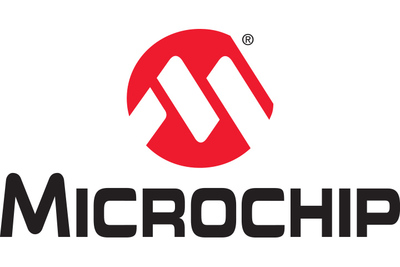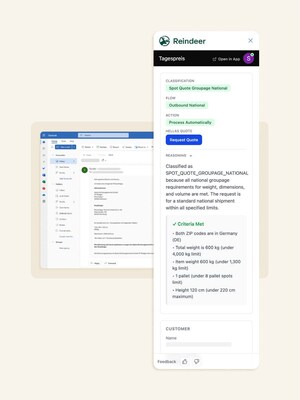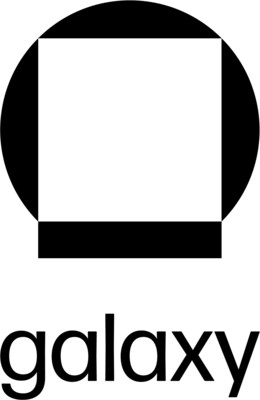Microsemi to Showcase Third-Party IP Offerings for Machine Vision Applications Using its Cost-Optimized, Low Power Mid-Range PolarFire FPGAs at Embedded World
Press Releases
Feb 20, 2018
ALISO VIEJO, Calif., Feb. 20, 2018 /PRNewswire/ — Microsemi Corporation (Nasdaq: MSCC), a leading provider of semiconductor solutions differentiated by power, security, reliability and performance, today announced it has expanded the third-party intellectual property (IP) offerings for its cost-optimized, low power, mid-range PolarFire™ field programmable gate arrays (FPGAs). With new support of artificial intelligence (AI)/machine learning IP and HDMI 2.0b interfaces, the company’s award-winning PolarFire device can now be used in industrial artificial intelligence applications which leverage the rich resources in the FPGA, particularly the large quantities of digital signal processor (DSP) math blocks and embedded RAMs.

“As the PolarFire FPGA product family has rolled out over the past year, we are seeing a broadening customer base adopt these devices for neural network based designs,” said Shakeel Peera, vice president FPGA marketing for Microsemi. “Our newly announced IP cores address these additional design requirements by leveraging the unique dot-product (DOTP) mode of PolarFire’s DSP block to perform the eight-bit integer convolutions used heavily in machine learning inferencing applications. In this mode, the DSP block can perform four nine-bit operations per clock cycle, making PolarFire an extremely resource and energy-efficient FPGA for machine learning applications.”
The newly expanded IP offerings make Microsemi’s PolarFire FPGAs ideal for a wide variety of machine vision applications within the industrial, medical imaging, retail, defense and automotive markets. The HDMI 2.0b IP, available through Microsemi’s collaboration with Bitec, enables displays up to 4K (ultrahigh definition) resolution, which can be used for AI applications such as retail advertising, smart mirror displays as well as traditional display designs like media servers and display walls. Machine learning or AI IP, offered via Microsemi’s collaboration with ASIC Design Services, is a key component for machine vision applications such as sensing objects, enabling applications such as surveillance cameras to detect faces or in retail for targeted advertising, as well as advanced driver assist systems (ADAS) applications allowing automobiles to detect cars, pedestrians or other objects.
“Our Core Deep Learning IP provides compelling machine learning solutions for numerous applications,” said Tony Dal Maso, chief executive officer of ASIC Design Services. “We blended our specialized FPGA design skills and deep learning expertise to produce an optimal solution, taking full advantage of the dot-product architectural feature of the new PolarFire FPGAs. Our solution will interest designers looking to reduce cost and form factor and optimize the performance/power ratio, an important metric in many applications.”
The low power characteristics of flash-based FPGAs, coupled with Microsemi’s FlashFreeze mode of operation and “instant on” capability, makes PolarFire a compelling platform for AI designs implemented on FPGAs. ASIC Design Services’ solution allows FPGA developers and machine learning experts to bridge the semantic gap between high-level model specification and FPGA design. For customers with limited prior experience, ASIC Design Services provides a full turnkey service including design and deep learning training, accelerating time to market.
Key features of the new machine learning/AI IP core include:
- Full pipeline from convolutional neural network description to FPGA implementation
- Network retraining for memory footprint minimization
- Support for different network layers
- Convolutional layer
- Fully connected layer
- Pooling layer
- Activation layers
- Convolutional layers can implement filters of any size and stride
- Pooling layers supporting arbitrary kernel size
- Support for padding
- AXI interface for external memory
According to Tom Hackenberg, principal analyst at IHS Markit, AI, or neural network (NN), processing such as machine learning and deep learning is quickly replacing IoT in technology headline news. It is not a one-size-fits-all technology, but one for many applications in which FPGAs are used. Highly parallel, reconfigurable and often more reliable, this class of processors can provide a broad set of solutions enabling innovative and diverse AI solutions. Automotive safety, building automation, security and surveillance are examples of early adopters of NN techniques where FPGAs are expected to exhibit double digit compound growth rates from 2017 to 2021.
“We are excited to support Microsemi’s PolarFire FPGAs with our HDMI 2.0b IP core, as well as the option for HDCP 2.2,” said Andy Robertson, director, Bitec. “We believe the smaller size form factors of PolarFire will be of interest for many video and display applications.”
Key features of the new HDMI 2.0b IP core include:
- Support for source and sink HDMI 2.0b
- Video support for 8, 10, 12 and 16-bpc Deep Color operation
- Supports ultrahigh definition
- Compatible with digital video interface (DVI) and dual link DVI
- Supports audio to 32-channel, 3D and multi-stream transport (MST)
- Optional High-bandwidth Digital Content Protection (HDCP) 1.4 and 2.2
- Optional Consumer Electronics Control (CEC) 1.4 and 2.0
The new IP cores for PolarFire FPGAs were brought to market by Bitec and ASIC Design Services via Microsemi’s Accelerate Ecosystem.
About Microsemi’s Accelerate Ecosystem
Microsemi’s Accelerate Ecosystem facilitates collaboration between Microsemi and leading firms in the semiconductor integrated circuit (IC), IP, systems, software, tools and design spaces to integrate, test and deliver pre-validated designs and system-level solutions for end customers in Microsemi’s key vertical markets—aerospace and defense, data center, communications and industrial. The Accelerate Ecosystem is designed to reduce time-to-market for end customers and time-to-revenue for Microsemi and ecosystem members via technology alignment, joint marketing and sales acceleration. Learn more at https://www.microsemi.com/product-directory/4194-partners.
Product Demonstrations in Booth 1-431 at Embedded World Feb. 27-March 1
Microsemi will be demonstrating its new third-party IP offerings from Bitec and ASIC Design Services for its PolarFire FPGAs in booth 1-431 at Embedded World Feb. 27-March 1, where technical experts will be on hand to discuss its Mi-V Embedded Ecosystem, PolarFire FPGA family and RISC-V embedded processor, among other solutions that address customers’ specific needs. For more information, visit https://www.microsemi.com/details/326-embedded-world-2018.
Availability
Microsemi’s PolarFire FPGAs are available now, with third-party IP cores available from collaborating companies like Bitec and ASIC Design Services. For more information, visit https://www.microsemi.com/products/fpga-soc/fpga/polarfire-fpga or email [email protected].
About PolarFire FPGAs
Microsemi’s new cost-optimized PolarFire FPGAs deliver the industry’s lowest power at mid-range densities with exceptional security and reliability. The award-winning product family features 12.7 Gbps Serializer/Deserializer (SerDes) transceivers at up to 50 percent lower power than competing FPGAs. Densities span from 100K to 500K logic elements (LEs) and are ideal for a wide range of applications within wireline access networks and mobile infrastructure, defense and commercial aviation markets, as well as industry 4.0 which includes the industrial automation and Internet of Things (IoT) markets.
PolarFire FPGAs’ transceivers can support multiple serial protocols, making the products ideal for communications applications with 10Gbps Ethernet, CPRI, JESD204B, Interlaken and PCIe. In addition, the ability to implement serial gigabit Ethernet (SGMII) on general purpose input/output (GPIO) enables numerous 1Gbps Ethernet links to be supported. PolarFire FPGAs also contain the most hardened security IP to protect customer designs, data and supply chain. The non-volatile PolarFire product family consumes 10 times less static power than competitive devices and features an even lower standby power referred to as Flash*Freeze. For more information, visit www.microsemi.com/polarfire.
About Microsemi
Microsemi Corporation (Nasdaq: MSCC) offers a comprehensive portfolio of semiconductor and system solutions for aerospace & defense, communications, data center and industrial markets. Products include high-performance and radiation-hardened analog mixed-signal integrated circuits, FPGAs, SoCs and ASICs; power management products; timing and synchronization devices and precise time solutions, setting the world’s standard for time; voice processing devices; RF solutions; discrete components; enterprise storage and communication solutions, security technologies and scalable anti-tamper products; Ethernet solutions; Power-over-Ethernet ICs and midspans; as well as custom design capabilities and services. Microsemi is headquartered in Aliso Viejo, California and has approximately 4,800 employees globally. Learn more at www.microsemi.com.
Microsemi and the Microsemi logo are registered trademarks or service marks of Microsemi Corporation and/or its affiliates. Third-party trademarks and service marks mentioned herein are the property of their respective owners.
“Safe Harbor” Statement under the Private Securities Litigation Reform Act of 1995: Any statements set forth in this news release that are not entirely historical and factual in nature, including statements related to the expansion of the third-party IP offerings for its cost-optimized, low power, mid-range PolarFire FPGAs and its potential effects on future business, are forward-looking statements. These forward-looking statements are based on our current expectations and are inherently subject to risks and uncertainties that could cause actual results to differ materially from those expressed in the forward-looking statements. The potential risks and uncertainties include, but are not limited to, such factors as rapidly changing technology and product obsolescence, potential cost increases, variations in customer order preferences, weakness or competitive pricing environment of the marketplace, uncertain demand for and acceptance of the company’s products, adverse circumstances in any of our end markets, results of in-process or planned development or marketing and promotional campaigns, difficulties foreseeing future demand, potential non-realization of expected orders or non-realization of backlog, product returns, product liability, and other potential unexpected business and economic conditions or adverse changes in current or expected industry conditions, difficulties and costs of protecting patents and other proprietary rights, inventory obsolescence and difficulties regarding customer qualification of products. In addition to these factors and any other factors mentioned elsewhere in this news release, the reader should refer as well to the factors, uncertainties or risks identified in the company’s most recent Form 10-K and all subsequent Form 10-Q reports filed by Microsemi with the SEC. Additional risk factors may be identified from time to time in Microsemi’s future filings. The forward-looking statements included in this release speak only as of the date hereof, and Microsemi does not undertake any obligation to update these forward-looking statements to reflect subsequent events or circumstances.
![]() View original content with multimedia:http://www.prnewswire.com/news-releases/microsemi-to-showcase-third-party-ip-offerings-for-machine-vision-applications-using-its-cost-optimized-low-power-mid-range-polarfire-fpgas-at-embedded-world-300600354.html
View original content with multimedia:http://www.prnewswire.com/news-releases/microsemi-to-showcase-third-party-ip-offerings-for-machine-vision-applications-using-its-cost-optimized-low-power-mid-range-polarfire-fpgas-at-embedded-world-300600354.html
SOURCE Microsemi Corporation



